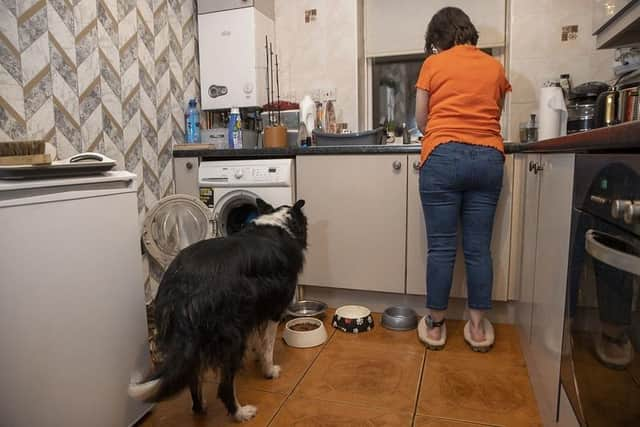Overcrowded prisons are an indictment of a society that jails chaotic people – Karyn McCluskey
When you have been in public services long enough, you'll encounter the refrain: “We are on a burning platform.” Yet, in the relentless rhythm of bureaucracy, this phrase often loses its potency, like a worn-out record repeating a dire warning. For those unfamiliar with the lingo, this phrase paints a vivid picture of an organisation facing dire challenges that threaten its very existence, demanding swift and radical action. It's a DefCon 2 state – a moment of critical decision.
I know the news is full of problems that grab our attention. Health service stats can feel particularly relevant if you are on a waiting list for surgery. For those with mortgages or rent, interest rates mean the squeeze on families may feel boa constrictor tight. Other issues pass you by, so distant you don’t notice them.
Advertisement
Hide AdAdvertisement
Hide AdThe justice-burning platform that’s causing sleepless nights and angst is the prison population. There were 7,940 in prison on Monday last week, including 1,896 on remand – untried and innocent until proven guilty. Fifteen years ago, Henry McLeish proposed a prison cap of 5,000. Let’s be clear, yes, they can squeeze people in, overcrowd, restrict the opportunities for rehabilitation and so much more, but who wants that to happen? It is a burning platform in its truest sense and demands our urgent attention.
We have to act, and not all the opportunities we have to consider will be palatable to all. First, we must consider risk, those who present the greatest risk of harm. Our prison service must keep them secure, the victims of crime and society demand it. Secondly, the door into prison must be narrower – for those who we can manage in the community, on supervision or on electronic tagging. Then we must make sure the resources and procedures enable that to happen, wherever you are in the country.
Lastly, the door out of prison needs to be wider. We must ensure that individuals are enabled to do the programmes and work necessary to get to the parole board for decisions to be made. We must use tagging and other mechanisms to safely transition people out of prison and into the community.
In truth, this isn’t a prison problem, the prisons can’t solve it, it’s an ‘us’ problem – all the drivers that mean our prisons are now the passive receivers of dangerous, difficult and chaotic people who cannot thrive in society without coming into contact with justice. I usually trot out the phrase that we should jail those we are afraid of, not those we are mad at, and it’s true.
The summary courts are full of people who struggle to navigate life, who can’t comply with community orders or bail without help because, well, chaos. I’d argue jail cannot be the place for them, and yet summary court sheriffs have the most difficult job – a Hobson’s choice – what is the least bad thing that they can do.


But let’s have a sensible conversation about this and move on from the cliched catastrophising that some parts of the media indulge in whenever real solutions are sought to the burning platform that is the criminal justice system. Rhetoric time is over, it’s time for some verbs. The doing words.
Karyn McCluskey is chief executive of Community Justice Scotland
